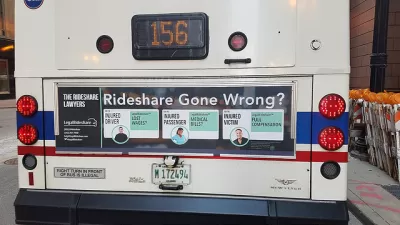The Brookings Institute thinks it has found a way to measure the impact of the expanding 'gig economy'—i.e., freelancing work enabled by online platforms like Airbnb and Uber.
Ian Hathaway and Mark Muro author a post examining the proliferation of the so-called gig economy in cities around the country. Despite so much attention paid to apps like Airbnb, Uber, and more, writes Hathaway and Muro, "it’s still hard to get a handle on the size and importance of either those particular platforms or the larger 'gig economy.'"
"However, it turns out that for all of the limitations of the available data, additional light can in fact be thrown on the online gig economy," according to the article. To do so, Hathaway and Muro called on "an obscure Census Bureau dataset on 'nonemployer firms,' which tracks the activity of 'businesses' that earn at least $1,000 per year in gross revenues (or $1 in construction) but employ no workers."
The findings of their analysis reveal a significant and fast growing gig economy, specifically in peer-to-peer ride-sharing and peer-to-peer room-sharing. Another finding of their analysis: "platform-based freelancing is not yet substantially displacing payroll employment," though the authors admit that could change. Finally, their analysis finds that online gigging is mostly concentrated in urban areas.
The article includes a lot more detail and some very nifty infographics to help illustrate its points.
FULL STORY: Tracking the gig economy: New numbers

Planetizen Federal Action Tracker
A weekly monitor of how Trump’s orders and actions are impacting planners and planning in America.

San Francisco's School District Spent $105M To Build Affordable Housing for Teachers — And That's Just the Beginning
SFUSD joins a growing list of school districts using their land holdings to address housing affordability challenges faced by their own employees.

The Tiny, Adorable $7,000 Car Turning Japan Onto EVs
The single seat Mibot charges from a regular plug as quickly as an iPad, and is about half the price of an average EV.

Seattle's Plan for Adopting Driverless Cars
Equity, safety, accessibility and affordability are front of mind as the city prepares for robotaxis and other autonomous vehicles.

As Trump Phases Out FEMA, Is It Time to Flee the Floodplains?
With less federal funding available for disaster relief efforts, the need to relocate at-risk communities is more urgent than ever.

With Protected Lanes, 460% More People Commute by Bike
For those needing more ammo, more data proving what we already knew is here.
Urban Design for Planners 1: Software Tools
This six-course series explores essential urban design concepts using open source software and equips planners with the tools they need to participate fully in the urban design process.
Planning for Universal Design
Learn the tools for implementing Universal Design in planning regulations.
Smith Gee Studio
City of Charlotte
City of Camden Redevelopment Agency
City of Astoria
Transportation Research & Education Center (TREC) at Portland State University
US High Speed Rail Association
City of Camden Redevelopment Agency
Municipality of Princeton (NJ)





























